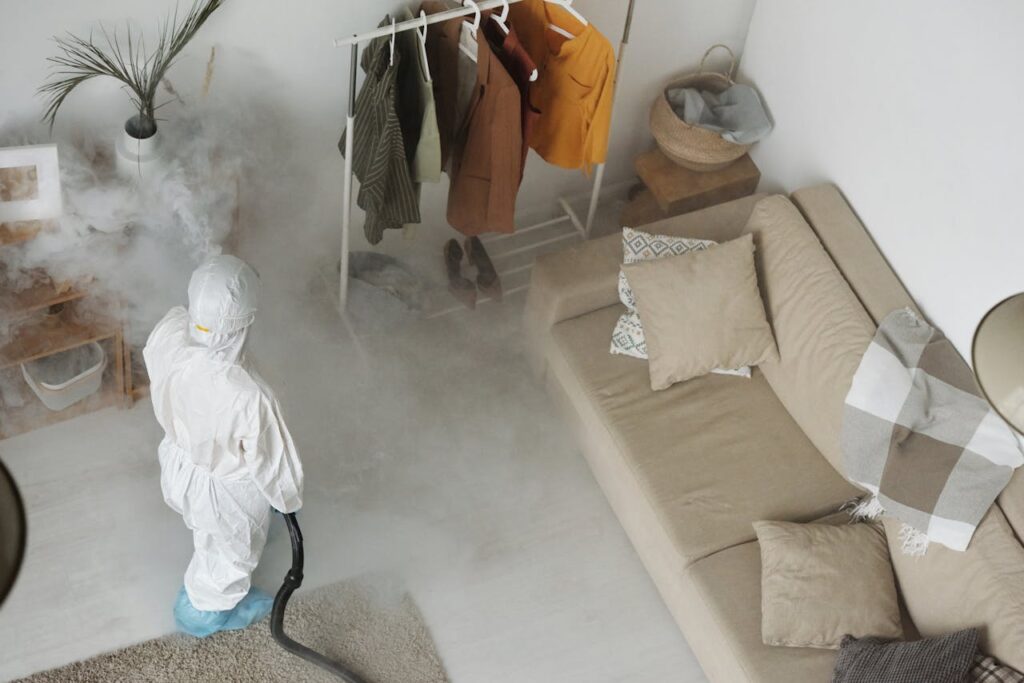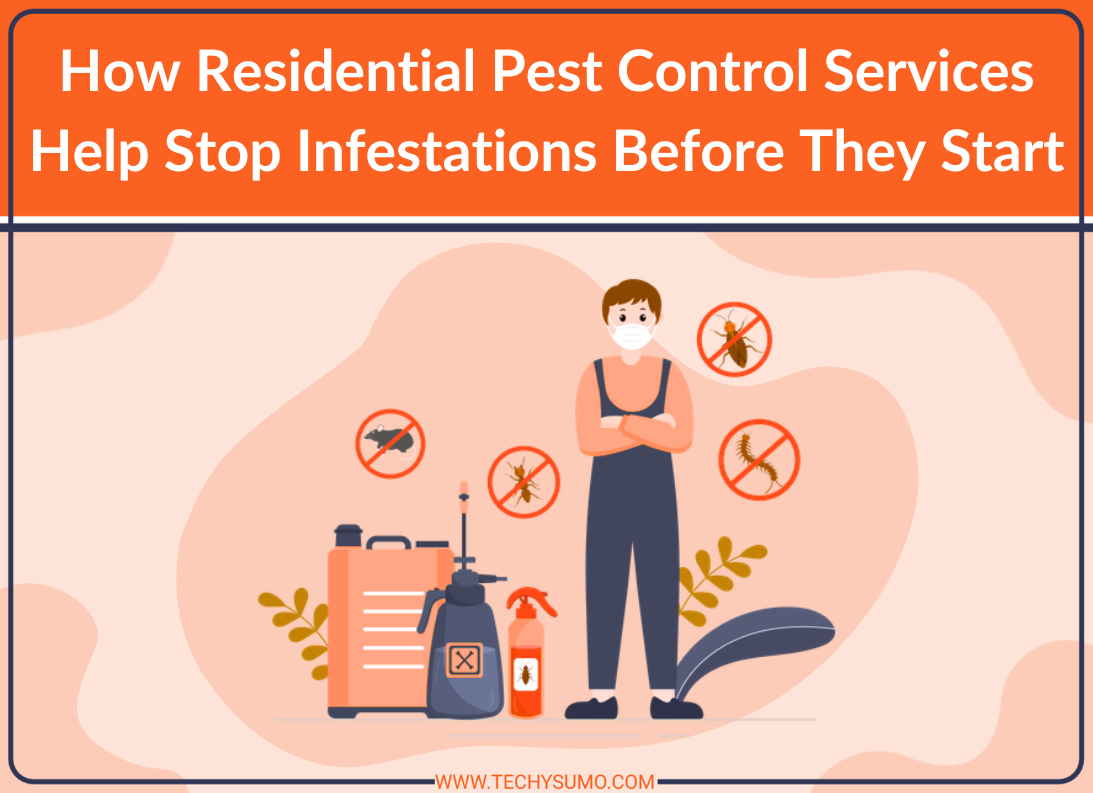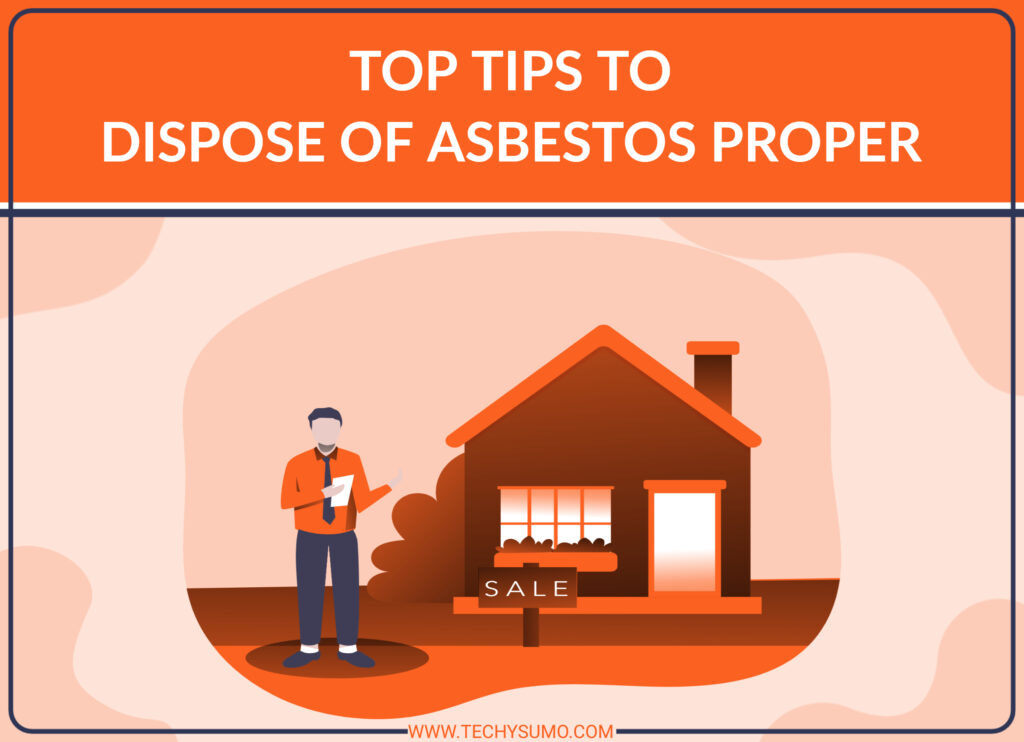Are pests causing stress and making home life feel less comfortable than it should be? Pests do not always appear overnight. Often, they build up silently, leaving signs that go unnoticed. The discomfort they bring can affect everything from daily routines to sleep quality. Addressing early signs of pest presence is the key to maintaining peace indoors.
Though some homeowners may rely on DIY solutions, professional help ensures long-term effectiveness. Residential pest control services are designed to prevent infestation problems before they get out of hand. By identifying hidden risks and applying strategic treatments, these services reduce the chances of full-blown infestations. Let’s read in detail about their benefits for homeowners.
Table of Contents
Early Detection Reduces Future Problems
Waiting for visible signs often results in damage that could have been prevented. Professionals know where to look and what to look for before pests multiply. Tiny openings, water damage, and food storage areas are all inspected to reveal early warning signs. Homeowners may not notice changes, but experts recognize even subtle evidence of insect or rodent activity.
This includes attics, crawlspaces, vents, and foundations that are common pest entry points. Even without seeing pests, traces like droppings, bite marks, or scent trails provide clues. Early action based on these signs is far more manageable than dealing with a widespread infestation. Once risks are discovered, customized plans help treat the environment proactively. This reduces the need for emergency interventions and eliminates future surprises.
Preventive Treatments Create Long-Term Protection
Preventive care is more than just spraying chemicals. It involves identifying patterns, environmental factors, and pest behavior specific to the home. Targeted treatments ensure that high-risk areas are handled before they can settle. Safe applications also protect pets and family members without affecting daily routines. By using professional-grade solutions and techniques, prevention becomes more precise.
Also Read
Technicians apply barriers in cracks, foundations, and potential nesting zones that are otherwise overlooked. This discourages new intrusions and disrupts the life cycles of pests already nearby. Long-term protection is about consistency and adapting to seasonal threats. Some pests peak in summer, while others invade during cooler months. A preventive service schedule ensures no period is left unguarded.
Customized Strategies for Unique Household Needs

Every home has different risk levels based on its structure, location, and habits of its residents. What works for one neighborhood may not be effective for another. Experts evaluate these details and develop pest control strategies tailored to the home’s layout and surroundings. For example, families with pets or small children may require less-toxic solutions.
Identifying food sources, moisture problems, and shelter spots forms the foundation of an effective plan. This approach creates a balance between control and comfort. Rather than applying the same method to every situation, specialists prioritize what works best for each setting. The result is safer, more reliable outcomes for homeowners.
Seasonal Services Respond to Shifting Pest Patterns
Not all pests are active year-round. As temperatures change, certain insects and rodents either multiply or seek shelter. These cycles often catch homeowners off guard, especially during sudden weather shifts. Scheduled seasonal visits ensure defenses are in place before pests arrive. Spring usually brings ants, termites, and wasps looking for food and shelter.
In summer, mosquitoes and flies often cause irritation, while fall invites spiders and rodents indoors. Winter can drive burrowing pests inside, looking for warmth and food. By preparing for these seasonal changes ahead of time, infestations are less likely to occur. Regular adjustments to the strategy maintain continuous protection throughout the year.
Safe Practices Protect People and Pets
Safety remains a top priority in any home. When dealing with pest control, there’s concern about the health effects of chemical use. Professionals are trained to use treatments that are both effective and compliant with safety standards. This helps create a pest-free space without risking the well-being of household members.
Modern control methods focus on low toxicity and eco-friendly options. Whether using baits, traps, or localized treatments, solutions are chosen with family safety in mind. The application is often timed and placed strategically to avoid unnecessary exposure. Additionally, homeowners receive guidance on steps to take before and after treatments.
Education and Maintenance Prevent Recurrence
An essential part of successful prevention is knowing how to avoid inviting pests back. Professionals do not just treat homes—they also educate residents on practical changes. From food storage tips to home repairs, small steps can make a big difference. For instance, sealing entry points, controlling moisture, and minimizing clutter help eliminate potential hiding spots. Proper disposal of waste and routine maintenance also discourage pests from returning.
These recommendations become part of a sustainable prevention strategy. Beyond the initial treatment, follow-up visits and monitoring tools help track activity. If any signs appear, they are addressed before the problem escalates. This support system keeps homeowners informed and confident in their pest-free living environment.
Residential pest control services play an essential role in keeping homes protected and comfortable year-round. Their focus on prevention, safety, and customized strategies makes them more than just a short-term fix. Choosing to work with experts means staying ahead of infestations, not chasing them after they’ve begun. This proactive approach builds a cleaner, safer living space for all who call it home.






